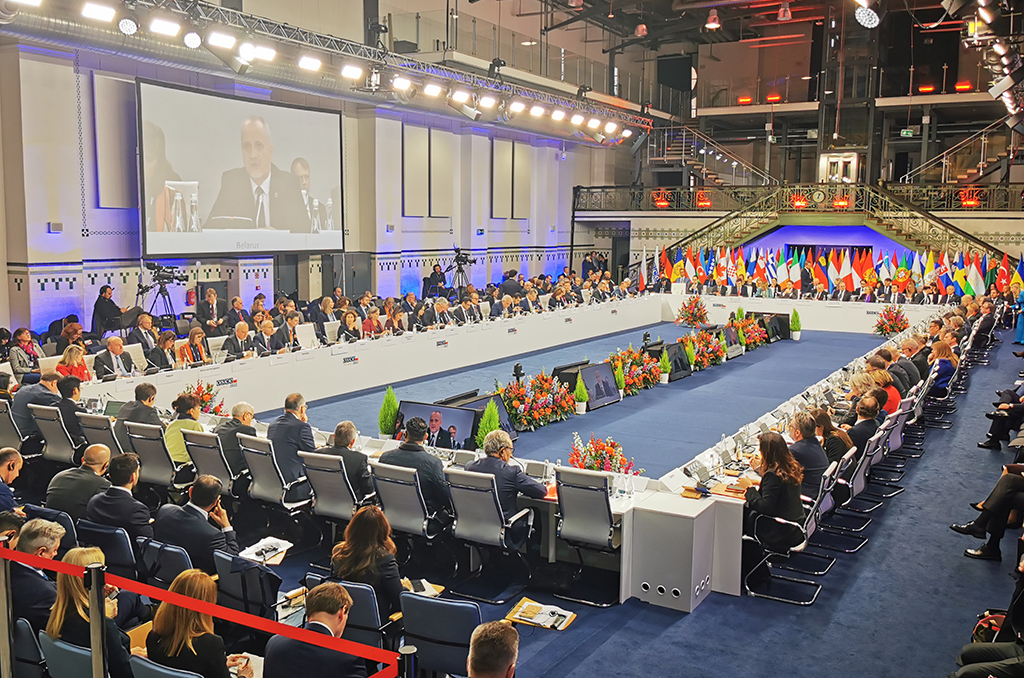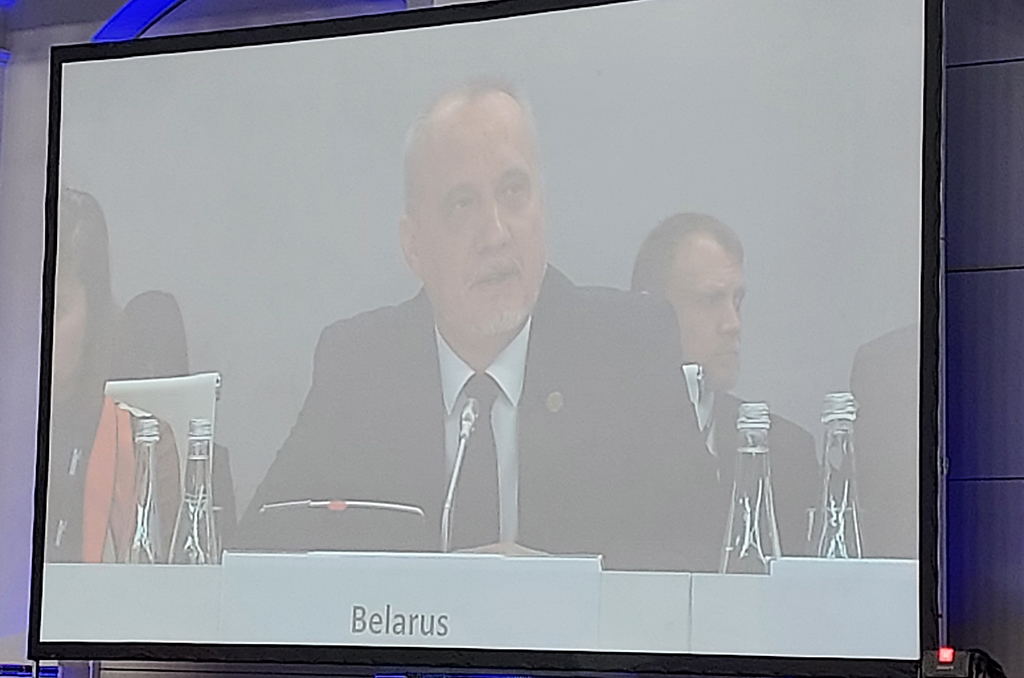Statement by the Foreign Minister of Belarus V.Makei at the 29th OSCE Ministerial Council (December 1, 2022, read out by the Permanent Representative of Belarus to the OSCE)
01 December 2022
What do you do when a house is on fire?
The first thing any responsible person would do is to try to put out the fire. Any sane person would not start with attributing blame for the misfortune. When in danger, you deal with a priority task – stop the fire.
Today Europe is on fire. This fire did not start this February. It has been smoldering for decades.

Every disregard for the interest and opinion of a counterpart, every attempt to strengthen one’s own security and well-being at the expense of security and well-being of others, every haughty manifestation of one’s sense of entitlement to the right to punish and pardon – all of this corroded the tradition of equitable engagement in Europe. It corroded the very spirit of Helsinki.
Because of this, as a political forum for dialogue and respectful discussion, the OSCE is hardly breathing.
Let us not forget that, in 1975, the Helsinki accords were not given the promise of perpetuity. The Helsinki accords and the agreements that followed are only as effective as the climate of interstate engagement allows. This climate today is a complete disaster.
How do we stop the fire in Europe?
Many in this organisation believe that one just needs to identify the culprit and then demonise, isolate and punish it. This is a brief description of the Western approach towards Russia and Belarus.

It has manifested itself in the barring of the Russian Minister from participating in this meeting. We deplore this decision as it is killing the OSCE. The foreign ministers of the CSTO Member States have made their position on this matter very clear in their joint statement last week.
This approach also manifests itself in the decision of the OSCE Chair not to invite the CSTO Secretariat to this meeting as an observer.
Silencing the voice of those with whom one disagrees some people see as a sign of strength of their principles. In fact, the only thing such action shows is fear of an alternative viewpoint and weakness.
The practice of ‘naming and shaming’ has turned the Permanent Council into a perfect forum for propaganda.
But the sad truth is that propaganda cannot restore trust or build new bridges of understanding to eliminate discord and animosity in Europe.
Only diplomacy can.
True, one does not need diplomacy if one believes in the power of unilateral efforts to corner, crush and strangle the opponent. Human history knows many examples of using sword and fire to sort out differences and disagreements.
Yet in the nuclear age, only people with suicidal tendencies can harbour these destructive ideas.
Since we know that these ideas still tragically tempt some leaders’ minds, Belarus will always keep her gunpowder dry.
Yet, more importantly, Belarus believes that we may get away from the brink of the looming global military disaster.
We can stop the fire of war in Europe.
To do this we have to, first, renounce the ideas and practice of political, social and cultural superiority and, second, accept in earnest the world around us in all its complexity and diversity.
Let us stop propaganda and media – oriented frenzy in the Permanent Council and use respectful instruments of engaging with each other.
Let us focus not on the 15 minutes of eloquent speaking fame but on down-to-earth and discreet bridge-building.
Let us finally put diplomats to work for the peaceful future of our continent.